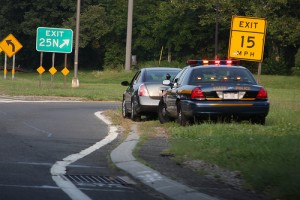Does an anonymous, unverified tip of dangerous driving justify a traffic stop? Yes, says a divided Supreme Court.
In Prado Navarette v. California an anonymous 911 caller reported that a vehicle had run her off the road. The Court held 5-4 that a police stop complied with the Fourth Amendment because, under the totality of the circumstances, the officers had reasonable suspicion that the driver was intoxicated. When police stopped the Navarette brothers they smelled marijuana. A search of the vehicle revealed 30 pounds of marijuana.
The Court’s rationale, in an opinion written by Justice Thomas, is as follows. The tip of dangerous driving was sufficiently reliable because by identifying specific details about the vehicle the caller necessarily claimed eyewitness knowledge of what happened, police located the vehicle where the caller indicated it would be, and the caller used the 911 system, which readily identifies callers and therefore discourages them from lying. Driving someone off the road creates reasonable suspicion of drunk driving because “[t]hat conduct bears too great a resemblance to paradigmatic manifestations of drunk driving to be dismissed as an isolated example of recklessness.” While the officer didn’t observe additional suspicious conduct after spotting the vehicle and observing it for five minutes, police do not have to give suspected drunk drivers a “second chance for dangerous conduct [that] could have disastrous consequences.” Justice Thomas described this case as “close.”
Justice Scalia, in a dissent joined by Justices Ginsburg, Sotomayor, and Kagan, accused the majority of departing form normal Fourth Amendment requirements that anonymous tips be corroborated. “Law enforcement agencies follow closely our judgments on matters such as this, and they will identify at once our new rule: So long as the caller identifies where the car is, anonymous claims of a single instance of possibly careless or reckless driving, called in to 911, will support a traffic stop.”
Image courtesy of Flickr by dwightsghost (creative-commons license, no changes made).
